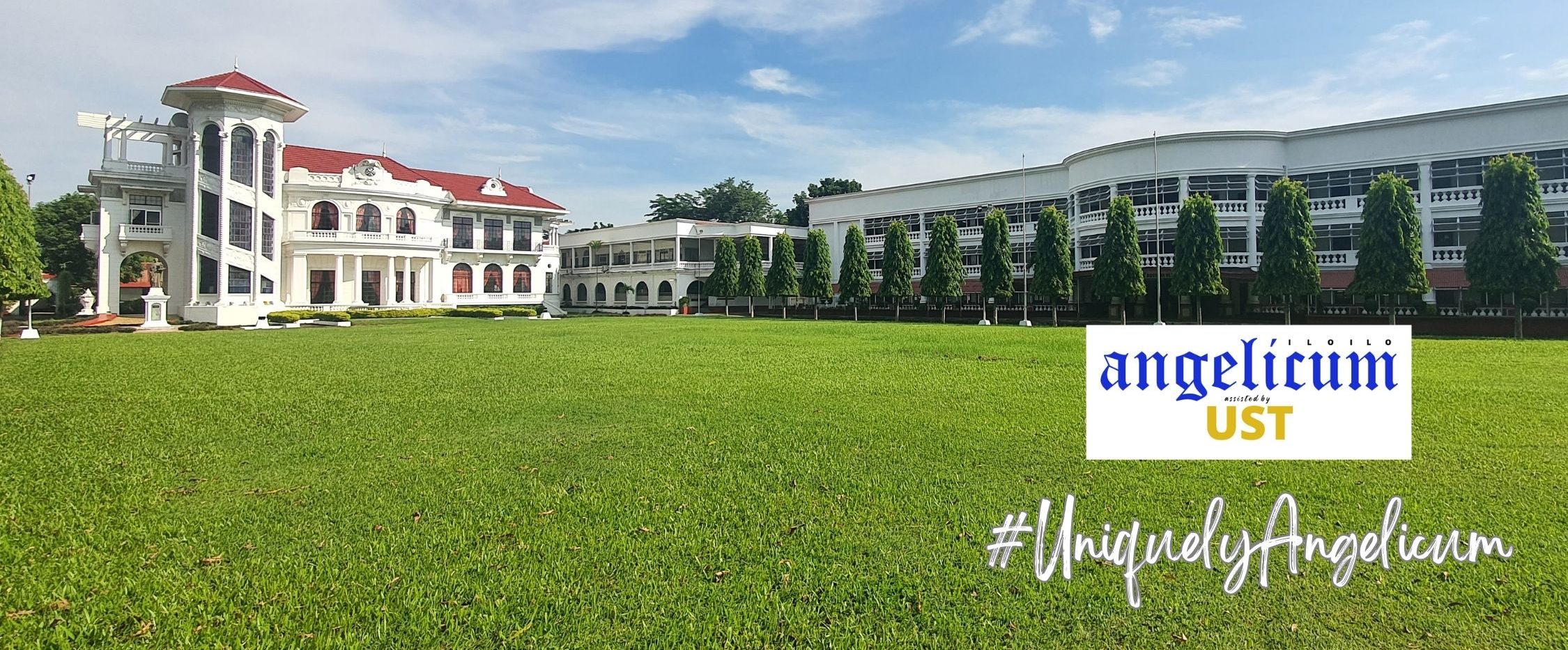The Angelicum Ways of Learning
Coursing from the overall Dominican Philosophy of Education, Angelicum’s identity stands on the acknowledgement that education is a process where the learner is in a continuous state of becoming a better person. It transpires within. It also recognizes that EVERYONE IS DIFFERENT and those differences make everyone unique in and of themselves. And who everyone truly is important to us. Here are the features of the Angelicum Non-Graded System of Education.
- Individualized learning
When it comes to Angelicum’s brand of education, all roads lead to the learner’s holistic development – according to his/her capabilities and pacing. The system is designed around that fact, where individualized learning is achieved through the learner’s self-paced navigation through the self-learning modules embedded in the curriculum.
- Self-paced
Since the focus is on the learner, the curriculum aptly adapts to correspond with the learner’s needs, interests, and abilities. Flexibility is a key characteristic in the system, geared towards progress and individual excellence.
- Process-oriented
Trusting and investing in the process is important in the Angelicum system, more so than the turnout, or the product. The learner goes through the educational journey, exploring the world without bounds, with child-like wonder, and will eventually learn to toil through and enjoy the process – and not focus on the rewards at the end of the road, or even getting there as fast as one can. The skills of inquiry, evaluation, synthesis, and application are key in this process.
- Continuous progression
A learner enters the Angelicum system on the merits of his/her capabilities, starting on a predetermined level and going on from there. Activities that are prepared for the learner are viewed as one continuum consisting of different graduated levels (Levels 1, 2, 3, so on).There are standards when it comes to the learner’s outcomes in different subject areas, but the time that a learner can reach the end of a designated period (e.g. a four-year period) varies.
- Mastery learning
Performance-based outcomes are emphasized in the system, where the learner is taught competencies and are evaluated for his/her mastery of those learnings.
- No grade labels
The usual time frame is not a concern when it comes to guiding the learner in his/her educational journey. The learner is not bound by grade levels when it comes to personal progression as Angelicum sees a particular subject area as a continuous whole that is achieved at the learner’s own pacing.
- No marking system
The Angelicum system veers away from the traditional, competitive or comparative way of grading a learner’s academic performance (i.e. 80% or A plus) and instead, turns to a descriptive approach to determine the learner’s mastery of the subject area.
- Self-evaluation
Self-awareness is a vital part of the development of the learner. Being aware of where he/she is in terms of subject area mastery can help him/her evaluate what needs to be adjusted, improved, or maintained. He/she is given a progress report chart and is trusted to learn how to monitor his/her development.
- No retention or failure
It is a non-practice in Angelicum to adhere to the promotion-retention system that assesses the qualification of a learner to move on to another grade level, or be retained at his/her current level due to failing a certain set of standards. This aims to curb a future scenario where the learner, who, despite doing his/her best, would be discouraged to achieve quality results, and in the long run, see him/herself to have little inherent quality.
- Teacher as a facilitator of learning
Teachers and parents serve as the guide in the learner’s journey. Having a very good relationship, one that thrives in openness and communication, is key for teachers and parents to talk about what is beneficial for the formation of the learner. Angelicum holds a Parent-Facilitator Conference that is founded on that very tenet.
- Positive motivation
Encouraging the learner to make sense of the problem and arrive at the solution requires the right motivation from factors such as facilitators, parents, and other members of the school. Angelicum genuinely reaches out to the learners, listens with empathy, and gives out positive motivation in any area of their learning journey.
- Cooperative Learning
When two or three (or more) learners gather, an exchange of ideas happens, an arena promoting dialogue is set up. This kind of cooperative learning is championed in Angelicum, as part of a holistic experience.
- Open Classroom
At the core of the Open Classroom system of education is the belief that the learner learns wherever he/she is. It also focuses on that place where the learner learns, and how it impacts the learning process. While the classroom is an important place for learning, and can have a decisive influence on a particular learner, learning in and of itself is not bound to it. The world is the learner’s playground – and learning ground.
- Home-School-Community Collaboration
All factors come into play where the learner’s education is concerned. The school, parents, and society have parts to enact within the learning process. Learning starts at home, complemented in school, verified in society and perfected in life.
- Distance Learning
Learning is not confined to a place, to a certain context. Distance learning is a realization of that, and refers to the use of modern telecommunications, specifically the internet, to give live instruction to locally-based learners, as well as foreign-based learners who are enrolled and cannot be physically present in school.

